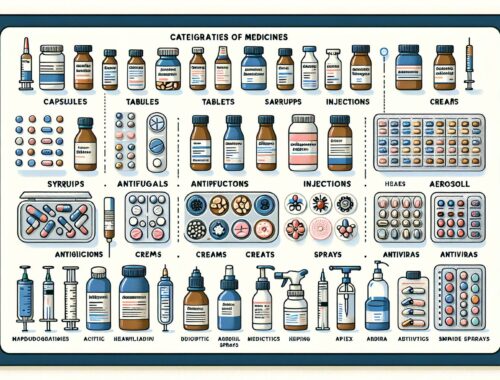
Understanding the Different Types of Medicines
Medicine plays a vital role in improving our health and well-being, helping us combat various illnesses and medical conditions. From over-the-counter remedies for common ailments to prescribed drugs for complex diseases, the world of medicine is vast and diverse. In this article, we will explore the different types of medicines and their applications.
Introduction to Medicines
Medicines are substances or compounds that are used to treat, prevent, or relieve symptoms of diseases and medical conditions. They can help manage chronic illnesses, alleviate pain, cure infections, and promote overall health. When used correctly and under medical supervision, medicines can significantly improve our quality of life.
Over-the-Counter (OTC) Medicines
Over-the-counter medicines, commonly known as OTC medicines, are those that can be purchased without a prescription. They are generally used to treat mild symptoms and common ailments such as headaches, colds, coughs, allergies, and minor muscle pain. OTC medicines are readily available in pharmacies, grocery stores, and even online, making them easily accessible to the general public. While generally safe, it is still important to carefully read the labels and follow the recommended dosages.
Prescription Medicines
Prescription medicines, on the other hand, require a written prescription from a licensed healthcare professional such as a doctor, nurse practitioner, or dentist. These medicines are used to treat more serious or complex medical conditions like chronic illnesses, infections, mental health disorders, and cardiovascular diseases. Prescription medicines often have specific dosages, administration instructions, and possible side effects. It is crucial to follow a doctor’s guidance when taking prescription medicines to ensure their effectiveness and minimize any potential health risks.
Traditional and Herbal Medicines
Traditional medicines, also known as alternative or complementary medicines, have been used for centuries in different cultures around the world. These medicines often rely on natural remedies and traditional healing practices to promote health and well-being. Traditional healing systems, like Ayurveda and Traditional Chinese Medicine, use a combination of herbs, plants, minerals, and specific treatment techniques to prevent and treat illnesses.
Specialty Medicines
Specialty medicines are a category of drugs that are designed to treat complex and often rare medical conditions. These medicines target specific diseases or disorders and require specialized knowledge for their administration and monitoring. Specialty medicines are often used in treating conditions like cancer, autoimmune disorders, genetic diseases, and chronic illnesses such as multiple sclerosis or Crohn’s disease. Due to the complexity, these medicines may be available only through specialized pharmacies or healthcare facilities.
Conclusion
Medicines come in various forms and serve different purposes. Over-the-counter medicines can help manage common ailments, while prescription medicines are required for more severe illnesses. Traditional and herbal medicines offer alternative treatments, whereas specialty medicines are designed for complex or rare conditions. Remember, it is critical to consult with a healthcare professional before taking any medicine to ensure safe and effective treatment.
You May Also Like

Exploring the Different Types of Medicines
February 24, 2024
Understanding the Different Types of Medicines
January 9, 2024

